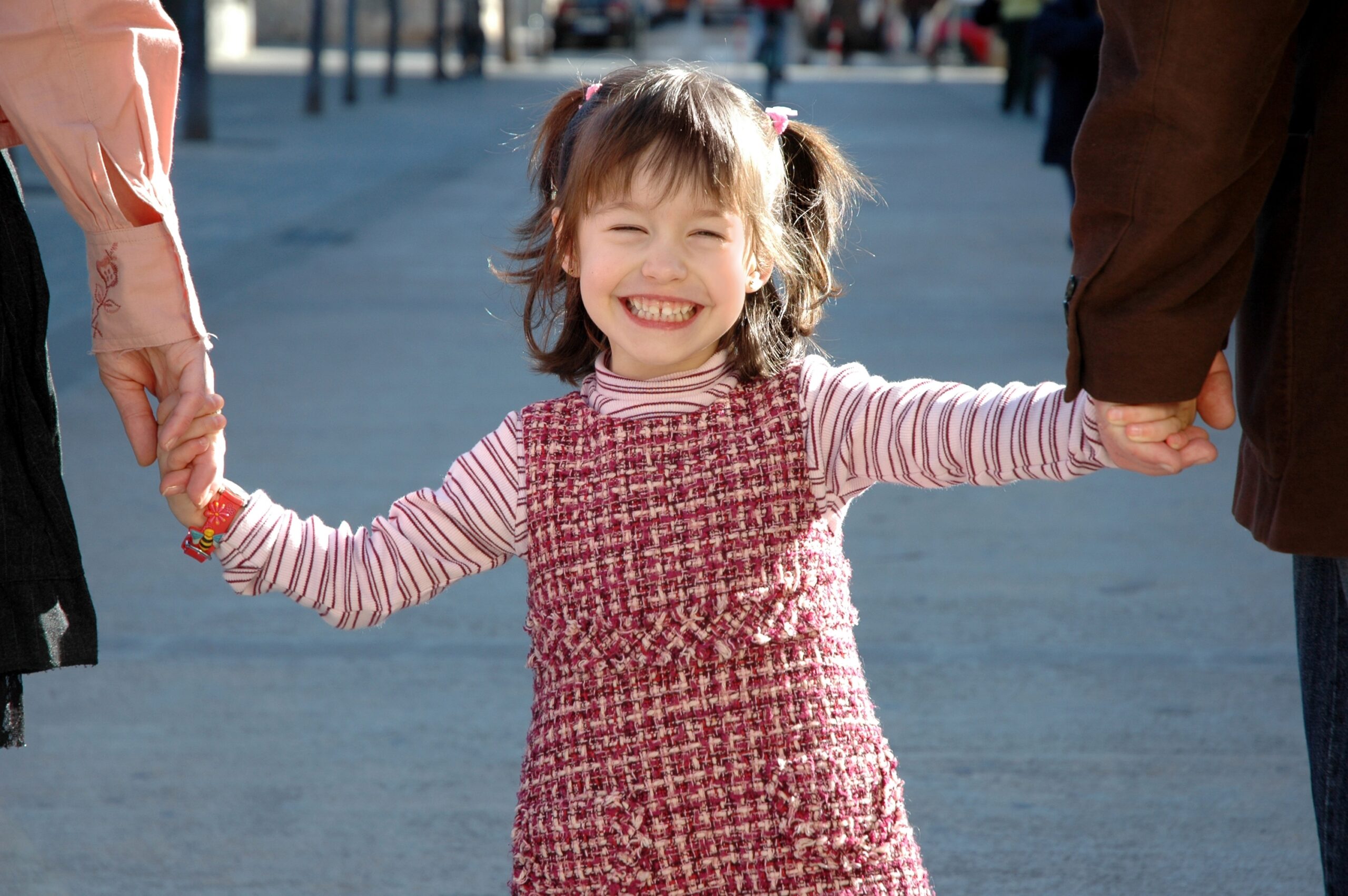Gemma* and her husband Phil* adopted five year-old Emily* through PACT in 2016. When Emily’s birth mum had another baby the couple were approached to see if they could adopt him too, and in 2017 Sam* was placed with the family when he was nine months old.
Gemma said she and Phil initially decided to adopt as they both wanted children, but hadn’t met until she was in her late 30s.
“I was aware of the clock ticking. We did look at fertility treatment and tried that but it just felt too late. For us adoption seemed like a really good option.”
The couple contacted their local authority, and attended an information event and a couple of follow-up meetings, but then Gemma saw an advert for PACT on a bus. They attended a PACT information event and really liked the approach.
“We just got the impression that they really cared about the children and the families they worked with, and were clearly passionate about what they did – we were really impressed.”
After being approved to adopt, the couple started the family-finding process, looking at profiles of children waiting to be adopted, including one of Emily.
Gemma said: “As soon as I saw her picture I just knew! I had been so determined with myself not to do that, but I couldn’t help it, she just had such a smiley face.”
The first time they saw Emily was at a blind viewing where she didn’t know who they were.
“It was a bit strange because it was such a big thing for us but she obviously had no idea who we were and all we wanted to do was scoop her up and take her home with us. It was just so lovely to see her in person, we were both quite emotional.”
After the couple were officially matched with her, Emily moved into their home, settling with them really well.
“From the minute we picked her up she was fine and very happy to be coming home with us. Her foster carer had done a really good job preparing her for it, and the two weeks we’d spent getting to know her had gone really well. She was referring to me as mummy within two or three days.”
Emily has since needed some additional help with emotional issues as a result of her early childhood.
Gemma said: “The biggest challenge has been getting her to trust us and know that we will keep her safe. There was some difficult behaviour in the first few months, she could be quite controlling and she did have some issues with men as there had never been a male in her life before.”
Gemma said the family had been well supported by PACT, particularly via their social worker and the Strengthening Families Team, which carried out some Theraplay sessions with Emily.
Gemma also said the training they had received from PACT had been “invaluable” during the first few months.
“I don’t think we could have done it without the training we’d had and the support we got. For us, we found the best approach was about being transparent and trying to empathise.”
When asked if they could consider adopting Emily’s brother, Gemma said they sat down with her and talked it through together as a family.
“We’ve always been very transparent and clear about her birth mum, and if we’d had a really negative reaction from her we wouldn’t have gone ahead but she was happy with the idea of it, and we involved her throughout the whole process. She even came with us to the introductions.”
When Sam first joined the family Emily was a little unsettled but they worked through this. Gemma said the two of them get on really well, and that Emily was a super big sister.
Gemma advised anyone thinking of adoption to make sure they have first thoroughly considered any other options, and are emotionally committed to it.
“For me, I think it’s just so important to be honest throughout the process, and be realistic that it’s not always going to be easy but it is completely worth it.”
*Names changed in line with confidentiality
Help more families like this
With your support, we can continue to provide vital services to adoptive families, women facing multiple disadvantages and children affected by domestic abuse
Donate today
With your support, we can continue to provide vital services to adoptive families, women facing multiple disadvantages and children affected by domestic abuse


